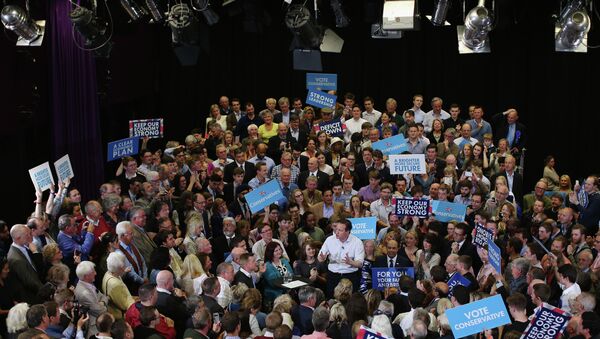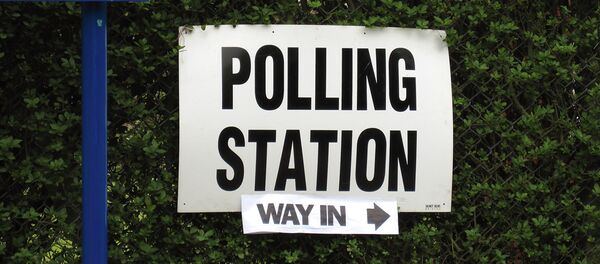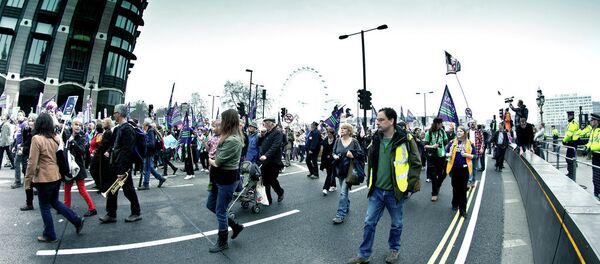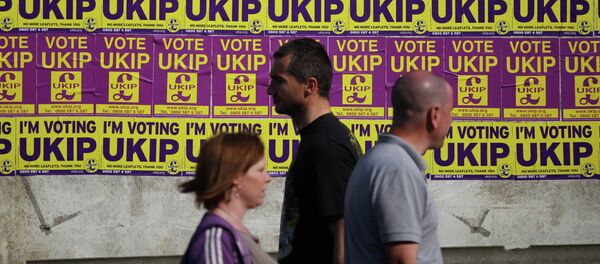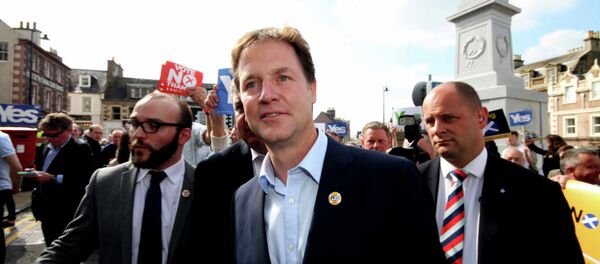MOSCOW (Sputnik) – As the UK general election draws nearer and no party is forecast to win a majority, the country can expect its future defense policy to take one of several entirely different directions.
While some parties seek to introduce bold increases to the defense budget, others envision minimizing Britain’s role in the international military arena.
CONSERVATIVES
The ruling Conservative Party, headed by current Prime Minister David Cameron, has increased budgets for security and intelligence agencies throughout its years in power.
Over the next decade, the Conservatives intend to invest at least £160 billion (some $242 billion) in new military equipment, and replace the Royal Navy’s four Vanguard-class submarines with four new ballistic missile submarines.
As for regular armed services, the party has vowed not to reduce their strength to below 82,000 personnel.
LABOUR
Labour, the main British opposition party, has not reached a consensus on whether to renew the country's Trident nuclear weapons program.
Instead, it has expressed its commitment to a “minimum, credible, independent nuclear capability,” as well as an intention to work on global disarmament.
Labour also intends to launch a strategic defense review if elected.
UKIP
Perhaps surprisingly, the issue of Islamic State has not been much discussed ahead of the 2015 election, despite being outlined as a major national threat by the UK security services.
Hundreds of Britons have traveled to the Middle East to join the notoriously violent group, which has seized vast areas of Syria and Iraq.
The center-right Conservatives, and the rightist UK Independence party, commonly known as UKIP, are among those who have underscored the importance of battling the group in their manifestos.
Promoting itself as the “party of defense,” UKIP proposes to increase the defense budget to meet NATO’s two percent goal in 2015-2016, and “exceed it substantially” for its remaining years in government.
Much like the Conservatives, UKIP advocates against British nuclear disarmament, though unlike Cameron’s party, it does not envision balancing the budget through continued austerity measures, leading opponents to question the financial sustainability of its policies.
LIBERAL DEMOCRATS
The centrist Liberal Democrats, who currently rule in coalition with the Conservatives, believe the United Kingdom should end “unnecessary” 24-hour nuclear patrols of the high seas, claiming the practice was designed to meet currently non-existing Cold War threats.
The Lib Dems also wish to merge defense and security spending if they come to power.
SCOTTISH NATIONAL PARTY
The Scottish National Party (SNP) seeks to scrap Trident altogether and calls for removing nuclear weapons from Scottish waters, though keeping existing conventional defense bases.
The party is currently the United Kingdom’s third largest by membership number, and has Scottish independence as one of its core issues.
Labour has notably also ruled out a coalition with the Scottish pro-independence party, with Labour leader Ed Miliband responding to media rumors by stating it “couldn't be clearer” the two would not strike a deal.
GREEN PARTY
The Green Party of England and Wales, known simply as the Green Party, seeks to eliminate the United Kingdom’s nuclear weapons.
The party also wishes to initiate negotiations on a universal treaty for nuclear weapons to be completely eliminated, and pursue a policy of “defensive defense” and overseas conflict prevention.
